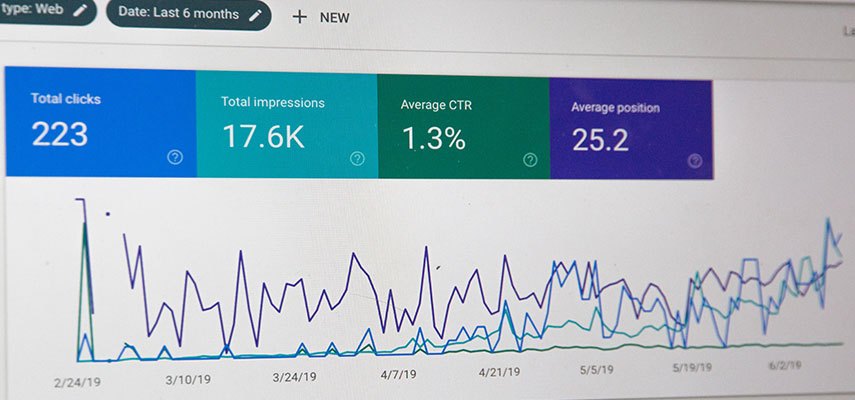How to Choose a Call Center Company?
Choosing a call center company comes with a wide margin of error.
As you scale your business, you need to look into outsourcing some of the services you provide. But you can’t risk losing the quality and expectations you’ve built up with your customers and in the industry.
Growing businesses who need to outsource some of their marketing and customer service efforts continually face this problem. It’s far from impossible to solve. But you do need to know what to look for.
Call centers specifically come in all shapes and sizes. Choose wrong, and your credibility could be in danger. Choose right, and you gain a reliable partner in growing your business.
You’re not on your own. In fact, you can make a more informed decision if you know what to look for.
If you’re looking to leverage the benefits of call center outsourcing, this is a great place to start. The top providers of outsourced business processes tend to share a number of traits that you can use for comparisons.
If a company you’re looking into shares these traits, you’re in luck! You’ve found a partner who can help you reliably grow your business.
1) A Successful Track Record

Let’s start with the obvious. Any call center company you even consider has to have a history in the field.
That history allows you to make better judgment calls. Can you actually trust what they’re telling you they’ll deliver? Are you able to build on their history for your own benefit?
You can find your call center’s track record through a number of factors:
- Check for testimonials, references, and in-depth case studies.
- Look into the client portfolio and ask about past clients.
- Make sure the track record is relevant to your business and industry.
You don’t have to choose the BPO company with the longest history. But you should limit your choices to at least a base level of experience that’s relevant to you.
The Quick Check: References
Ask for the contact info of current clients, then give them a call. You’ll learn a lot more from independent third parties than you ever could from the call center itself.
2) The Right Infrastructure

It’s what’s behind the curtain. Your call center’s infrastructure may not be visible to you, but it determines much of what will make it successful.
The best call center companies have the right infrastructure in place. They use it to effectively manage their call volume and queue, telephone integration, and more.
Advanced infrastructure elements may include social media monitoring, speech recognition, and more. Together, they help your future BPO partner take good care of any incoming and outgoing calls.
The Quick Check: Technology
Ask about the software and hardware any potential call center uses. You don’t have to know the details. Just some basic research on it can tell you a lot about the infrastructure and thought behind it.
3) The Location and Native Language

The location of the call center you’re considering should play a core role in the decision process. Closer is always better, especially when it comes to your customer base.
What matters here is not proximity to your company, but to your customers. That proximity needs to be both physical and cultural, for a few reasons:
- Physically close call centers operate in a similar time zone as your audience, minimizing potential down or off times.
- Culturally close call centers understand references, naturally respect common holidays, and build better rapport with your customers.
Then there’s the language component. 74% of customers are more likely to stick with you if their after-sales support is offered in their native language. Agents who speak your audience’s language can go a long way in choosing the right provider.
The Quick Check: Language Expertise
Ask about the primary language of the agents who’ll be working on your behalf. Non-native speakers can be effective too, but they should be easy to understand by any customers calling in.
4) Security Protocol and Procedures

It’s not a pretty picture. According to security experts, call centers tend to be the weakest link in the effort to protect and improve cybersecurity.
It doesn’t have to be that way. If you approach it the right way, your call center data can be safe.
You just have to find the right partner.
As you look for call center companies, make security a point of emphasis. Ask about the security of the center’s software, and the measures being taken to keep your data safe if you’re storing customer information with your third party provider. Additional, make sure the call center agents are put through some form of acceptable data use training.
The best potential partners know how to answer these questions. They have a plan in place. Stay away from those that don’t.
The Quick Check: Security History
When in doubt, ask about the track record. Have there been any breaches? If so, what improvements have been made? If not, what has the call center done right to prevent them?
5) An Analytics Emphasis

Most, if not all, call center companies provide some reporting on their work for you. Only the best collect and report analytics that actually provide valuable data.
That means going beyond call volume. Ideally, your partner should track at least some combination of the following:
- Call abandonment rate
- Average time in queue
- First call resolution rate
- Call escalation rate
- Speed of answer
- Average call duration
- Percentage of calls blocked
- Customer call satisfaction rate
Analytics are changing the way call centers operate. Whether or not you choose the right BPO partner may well come down to whether they’re on the front or back end of that trend.
The Quick Check: A Sample Report
You don’t have to take their word for it. Simply ask any call center company you’re considering for a sample report they share with clients. Make sure it matches what you need to evaluate the effectiveness of your marketing and customer service.
6) Data Integration

As they complete inbound and/or outbound calls for you, the call center agents working on your behalf will collect a large volume of data. What happens to it?
It seems like an obscure question. In reality, it’s a core success metric.
Customer Relationship Management (CRM) is becoming more comprehensive. Industry leaders are adopting life cycle approaches that track every interaction your customers have with you, from the first time they get in touch.
Naturally, your call center is a crucial part of that relationship. You want to know about a problem a customer is facing or a question they have before a new purchase.
How does that data flow back to you? How can your outsourced call center’s software interact with your own? The best alternatives have systems in place that automate this data flow and integrate their systems with your own.
– how does data flow back to you? What data can you get?
The Quick Check: Existing Integrations
Start with your own software. Ask whether your potential partner can integrate with it, and what integrations they offer in general. That alone can help you understand the integration possibilities.
7) A Training Program

Practice makes perfect.
No call center agent will be an expert from the beginning. Especially not in your company and industry. That’s what makes consistent and reliable training so important.
Make sure that the agents working with you will be educated in the general calling best practices. But don’t stop there. Part of the onboarding process should be an in-depth introduction to your company, product, and value proposition.
You may choose to lead it, or your new partner might. It’s the general willingness to engage in training and keep trying to get better that separates great call center companies from the others.
The Quick Check: Training History
Of course, you can ask about training. But it may be even more helpful to look at past practices. How has the call center treated other clients? Has learning and continuous improvement been a part of those relationships? If the answer is yes, you’re in good hands.
8) The Right Leadership

Great management starts at the top, and your outsourced BPO efforts should be no different.
Everyone in the organizational hierarchy, from shift managers all the way to the CEO, should be reliable and trustworthy. They should be able to have a conversation with you. And of course, they should have the expertise necessary to succeed.
That sounds obvious, but it isn’t always the case. Too often, you hear from few others beyond your account service rep.
It’s easy to change that if you know what to look and ask for. The simple willingness to provide access to the actual managership and leadership can go a long way in determining whether this is the right BPO partner for you.
The Quick Check: A Conversation
Just talk to the right people. There is no quantitative metric of checkmark that discerns the right leadership, but a simple conversation with that leadership can go a long way.
9) Add-on Services

Not all call center companies offer comprehensive add-on services in addition to their core process. This should not be a make-or-break question. Still, depending on your needs, the services offered may help you choose the right partner.
Depending on the company you choose, you may find a number of add-on services that can improve the way in which they work for you:
- Email marketing to sync up with outbound calling efforts.
- Social media monitoring to account for new customer service trends.
- Advanced analytics that help you better serve your customers.
- Industry reports and analysis that help you benchmark your own efforts.
One or more of these services may be enough to serve your needs. Go into the search process with a clear idea of what those needs are, then find a partner who can help you fill them.
The Quick Check: The Call Center Website
If a call center company offers these types of add-ons, chances are they’re proud of them. Finding out about them might be as simple as checking their website and checking for these services.
10) The Right Cost

Finally, and naturally, the price has to be right. The right partner can offer affordable services that don’t break your budget.
That might seem obvious, but becomes crucial as you look to future growth. Initially affordable prices may become less favorable once the call volume increases.
That’s why the right BPO partner has a pricing structure that grows with you. They start with affordability, but are able to scale that up naturally and with your increasing profits.
It’s not always easy to find out whether that’s the case. Still, it’s a crucial step. Even the best call center partner that hits all of the above points won’t bring value if their pricing is just too high for your business model and revenue.
The Quick Check: A Quote
Fortunately, this final point is easy to find out. Ask for a quote. Make sure that quote accounts for both your current situation and potential future growth. Ask questions about the quote if possible. Do your due diligence on making sure the cost is right.
Ready for Better BPO When Choosing a Call Center Company?

It’s not easy. The margin of error is wide. Still, it’s possible to hit the mark when choosing a call center company that truly drives your business forward.
Start with a list of potential partners based on your research. Then, compare these options against each other using the ten above criteria. From the right leadership to the right reports and the right costs, make sure any potential BPO partner has exactly what you need.
You’ll find a surprisingly low number of BPO providers who hit most or all of these criteria. Hone in on them. Move to personal conversations and evaluations of the business fit.
That, ultimately, is how you get to better business process outsourcing when choosing a call center company. It takes work, and you have to stay disciplined. The result, though, is almost guaranteed success in outsourcing this crucial process in both your marketing and customer service areas.
When in doubt, dig deeper. References always help, and so do independent reviews by third-party websites. The more intelligence you gather, and the more information you have to look for these top 10 traits, the more likely you’ll be to find a partner that helps your business succeed and grow.